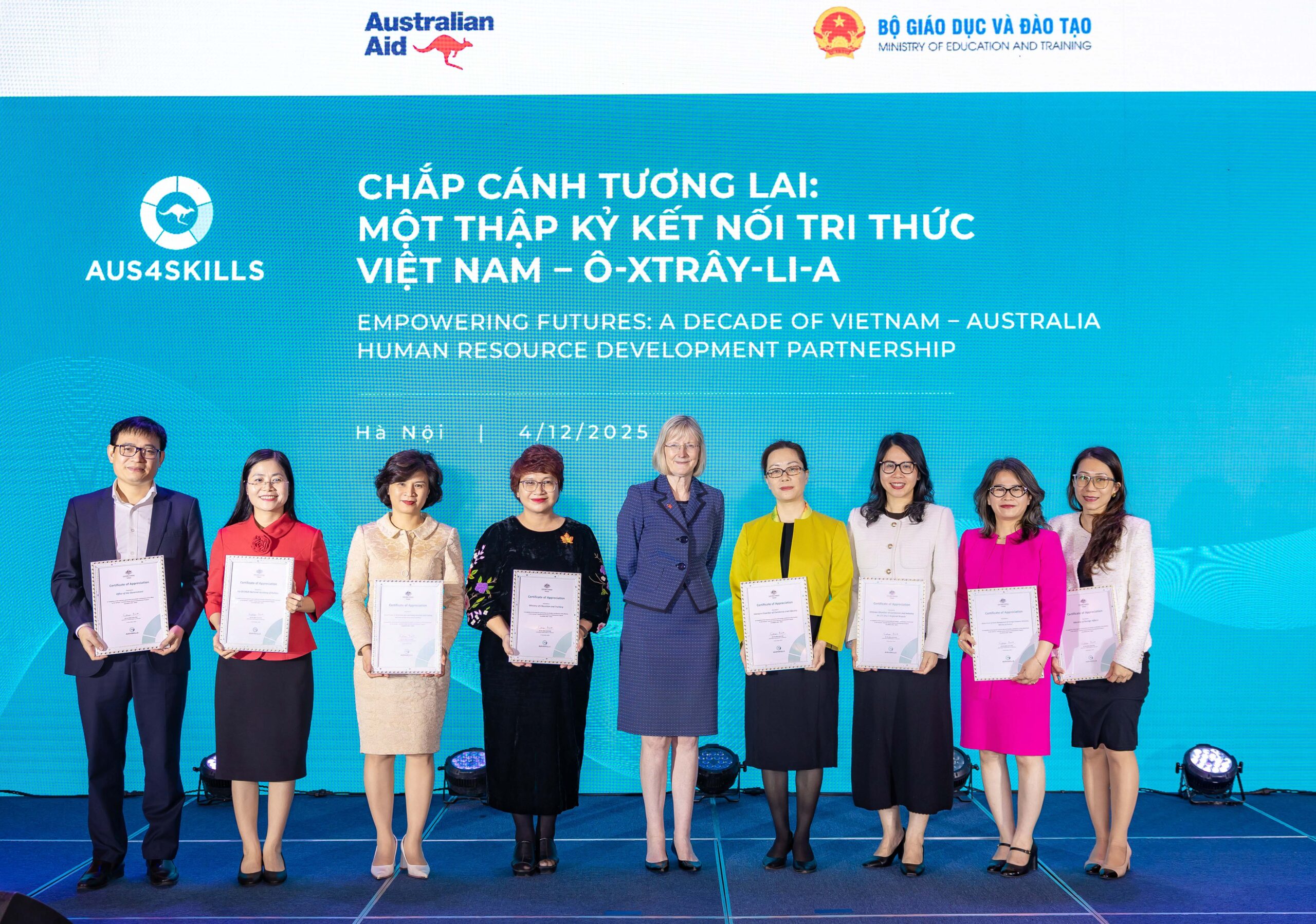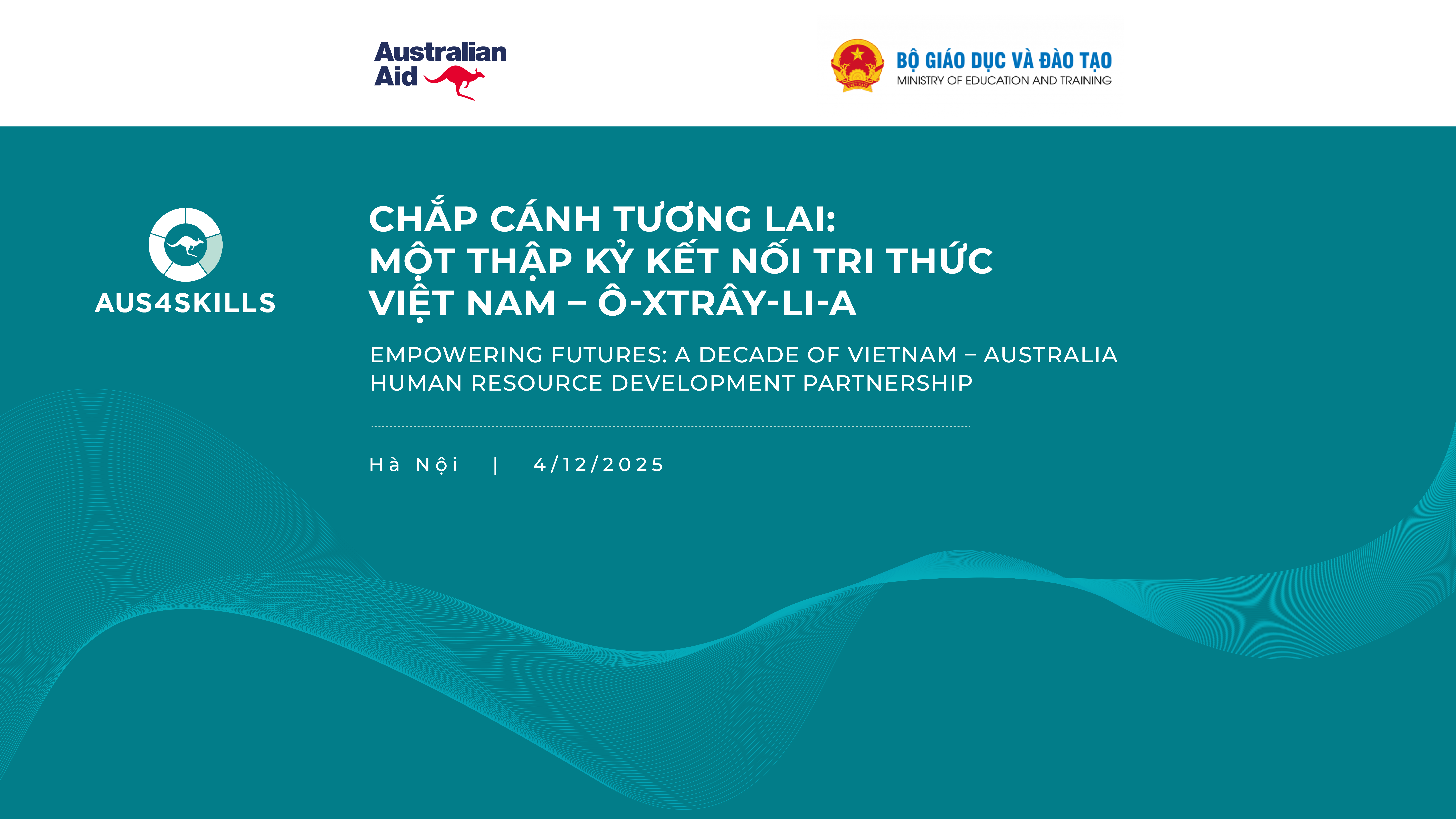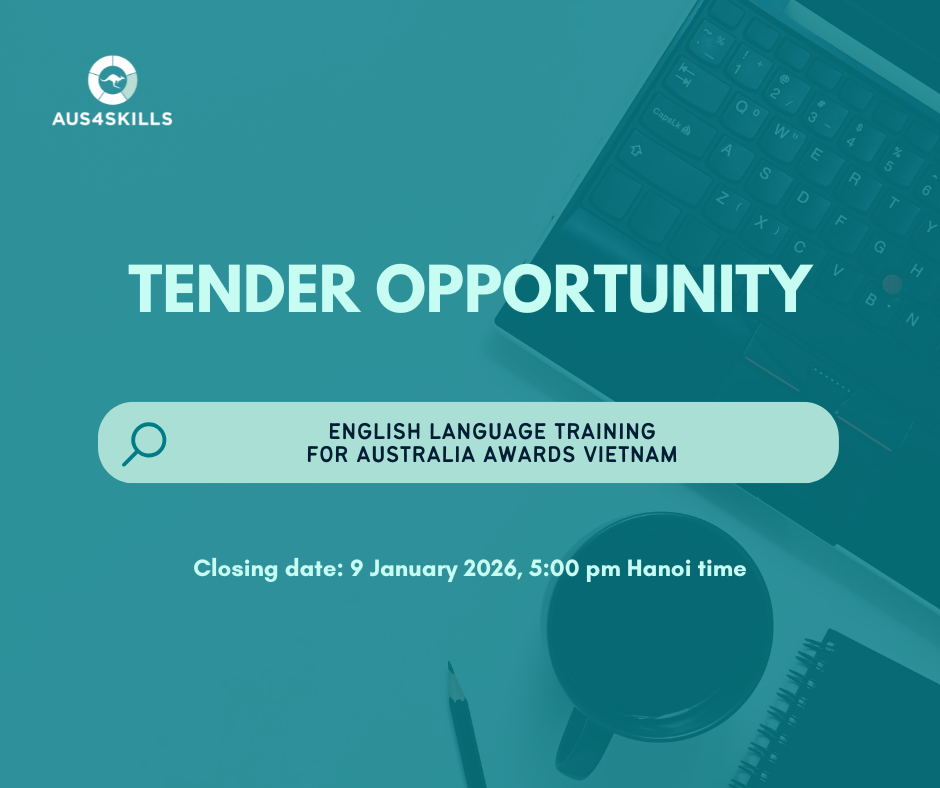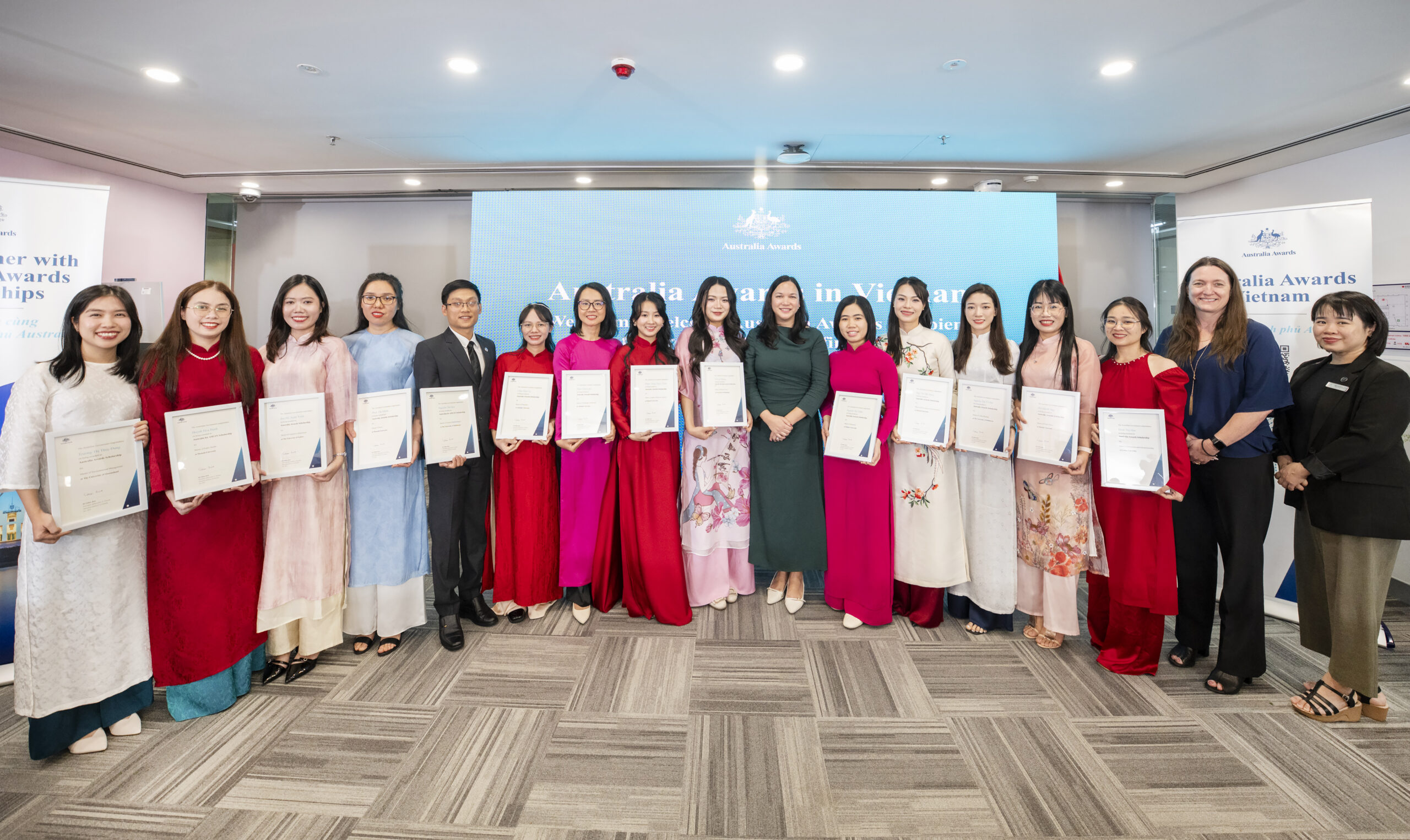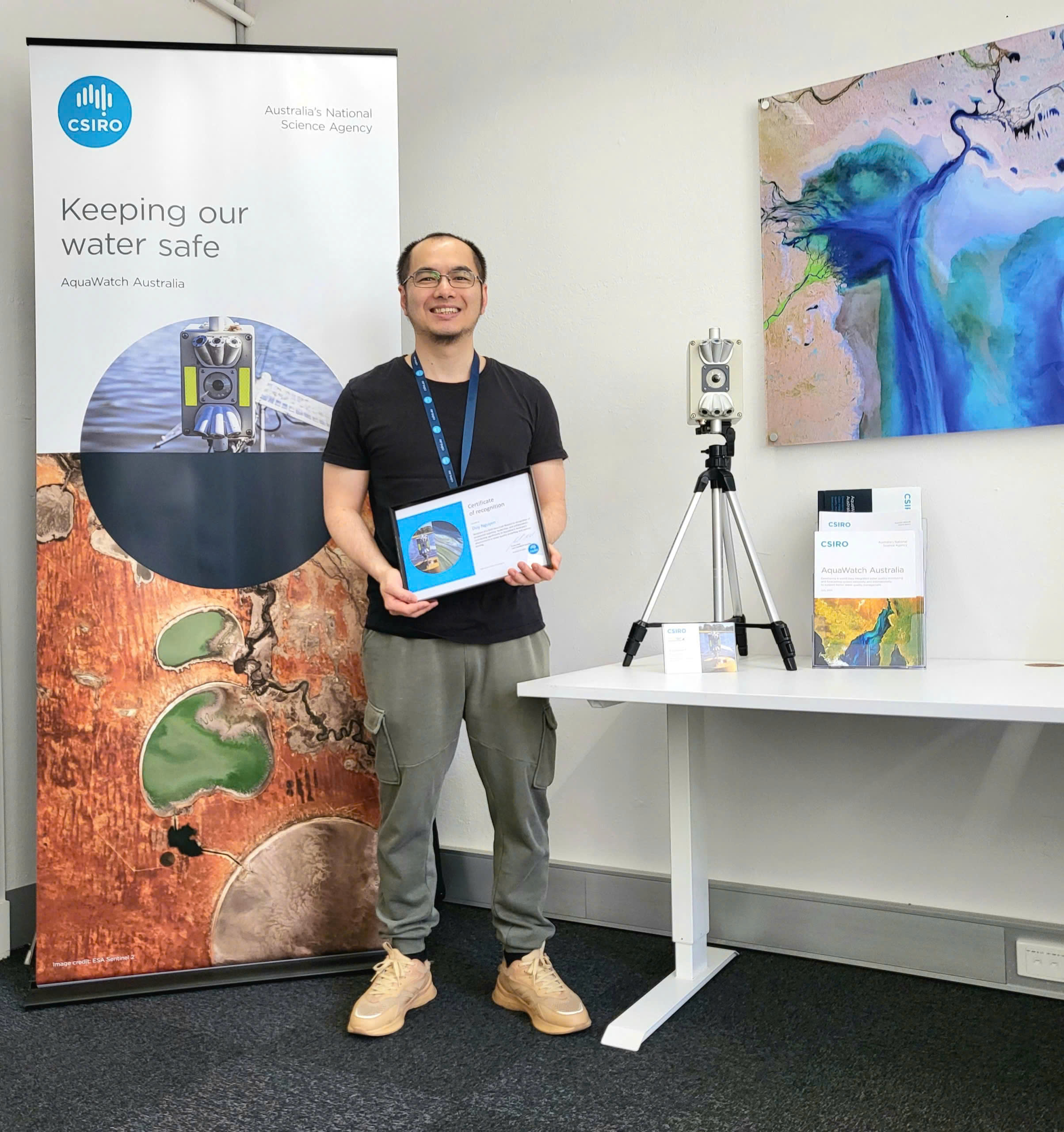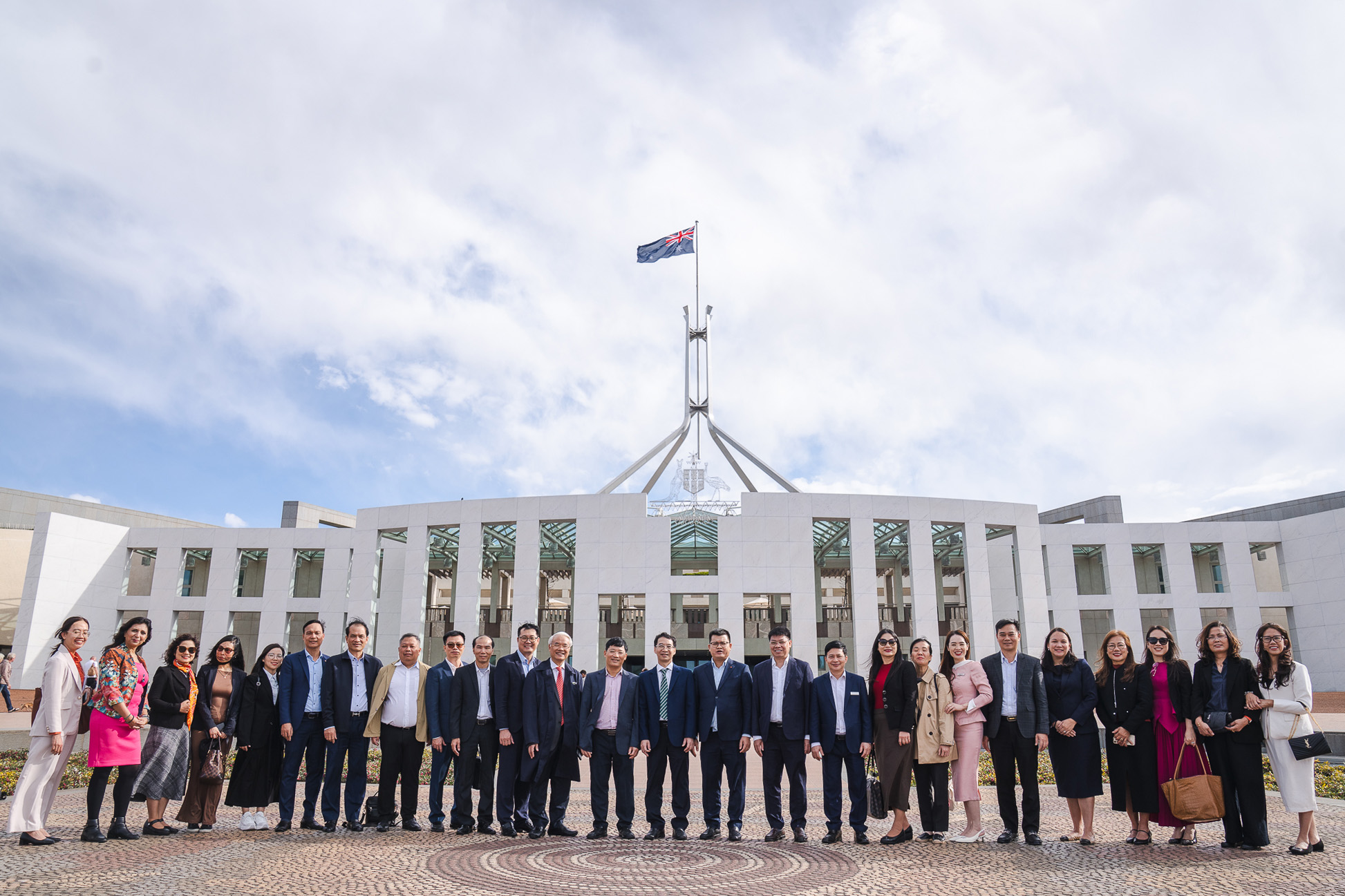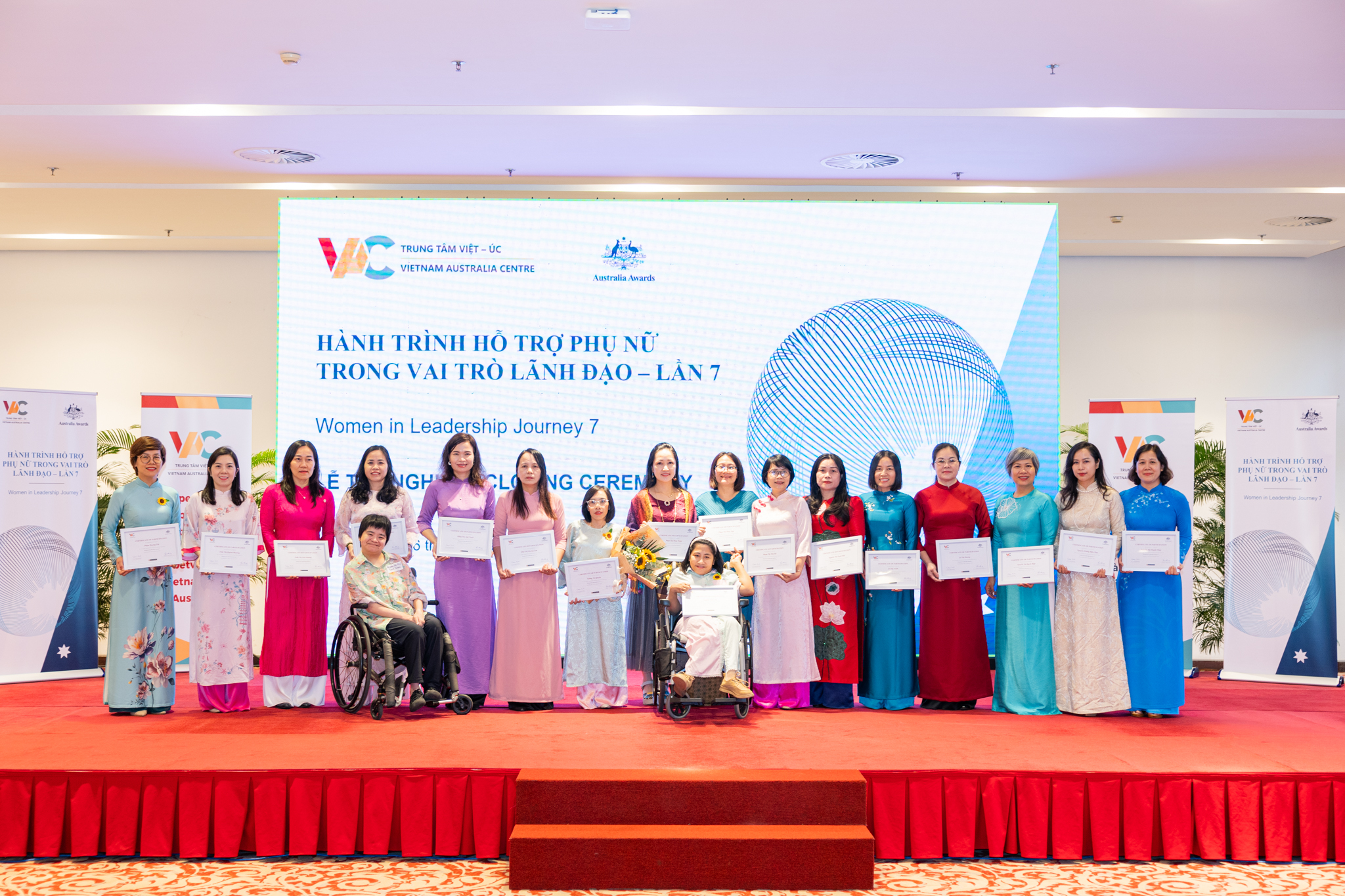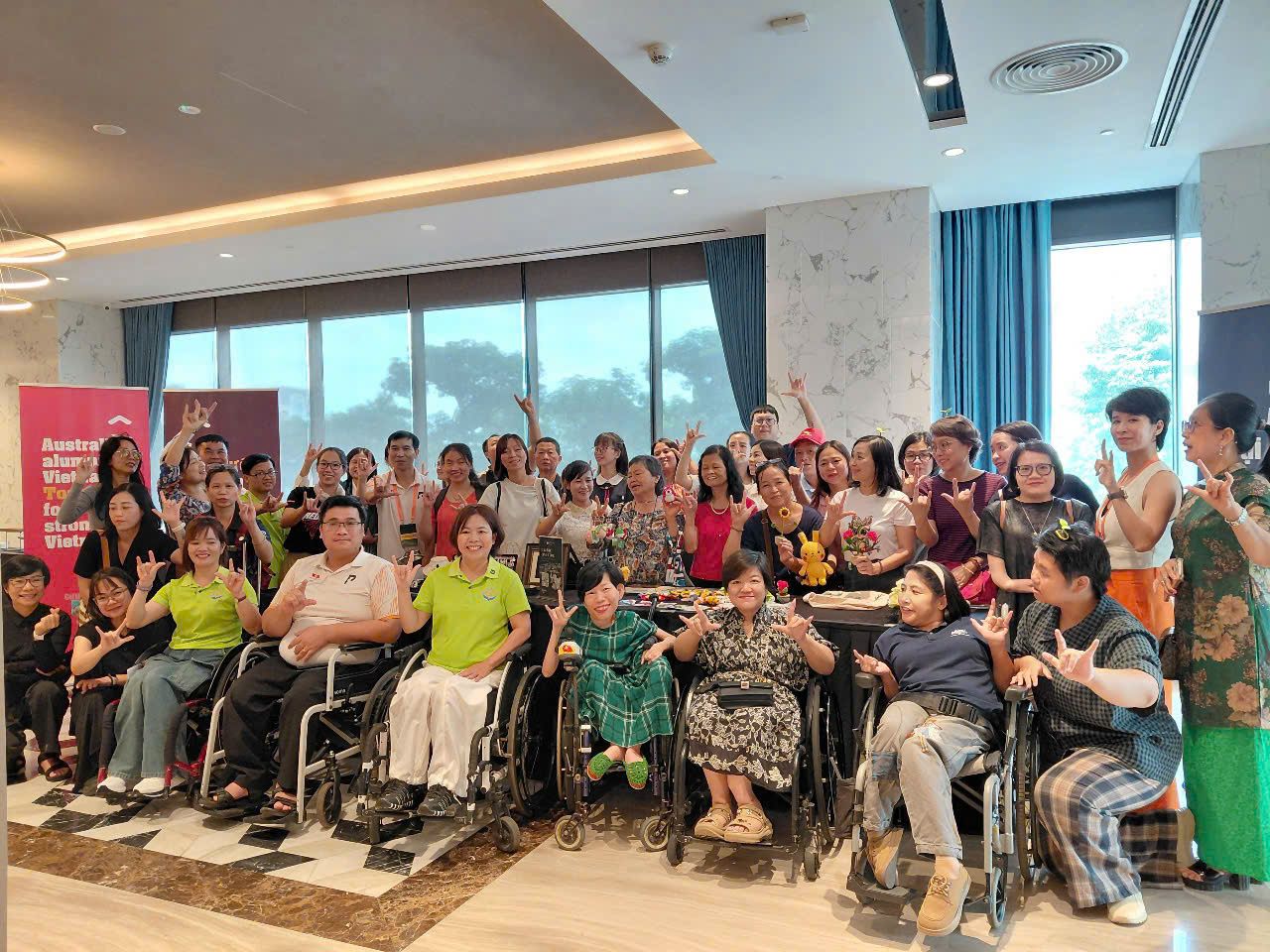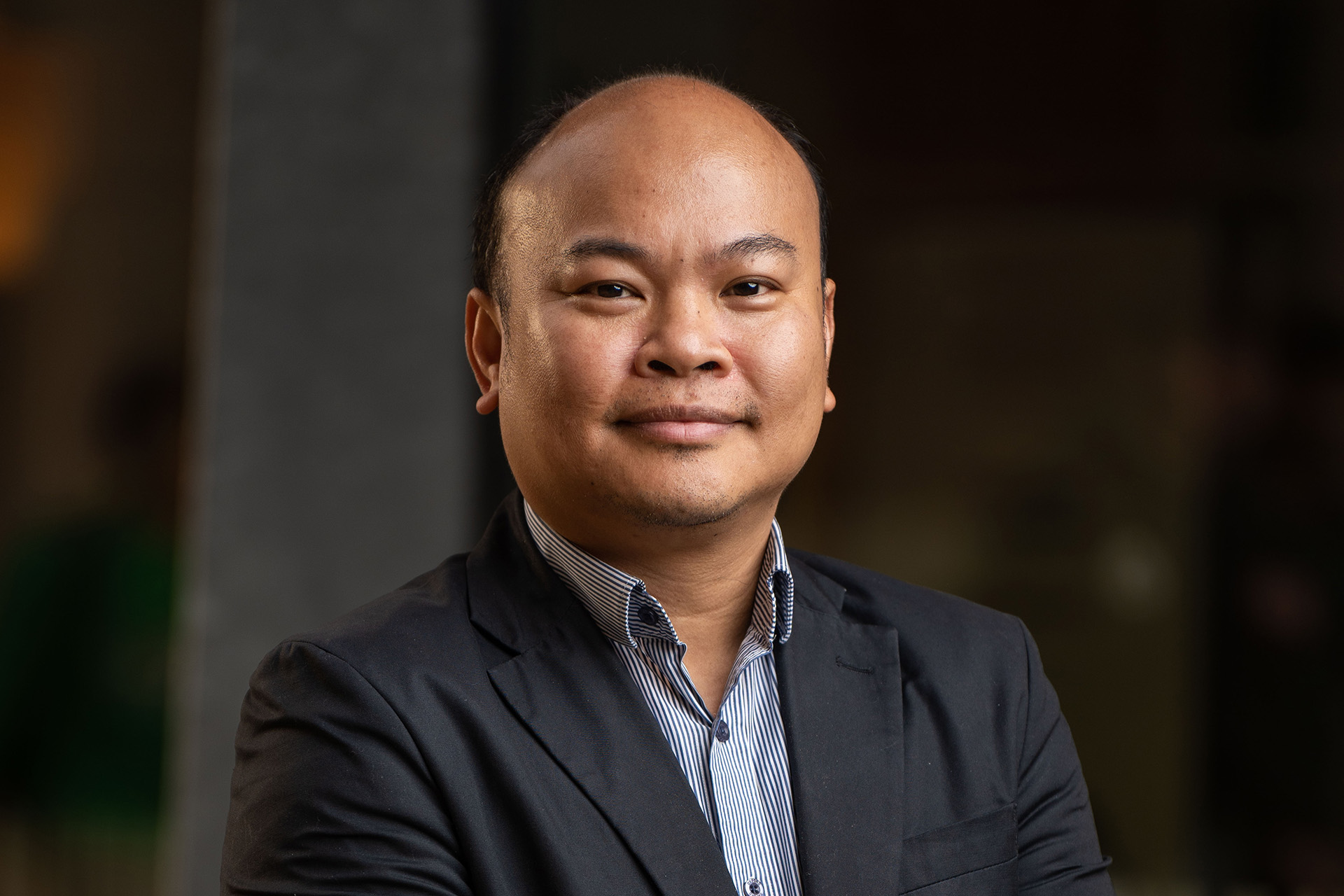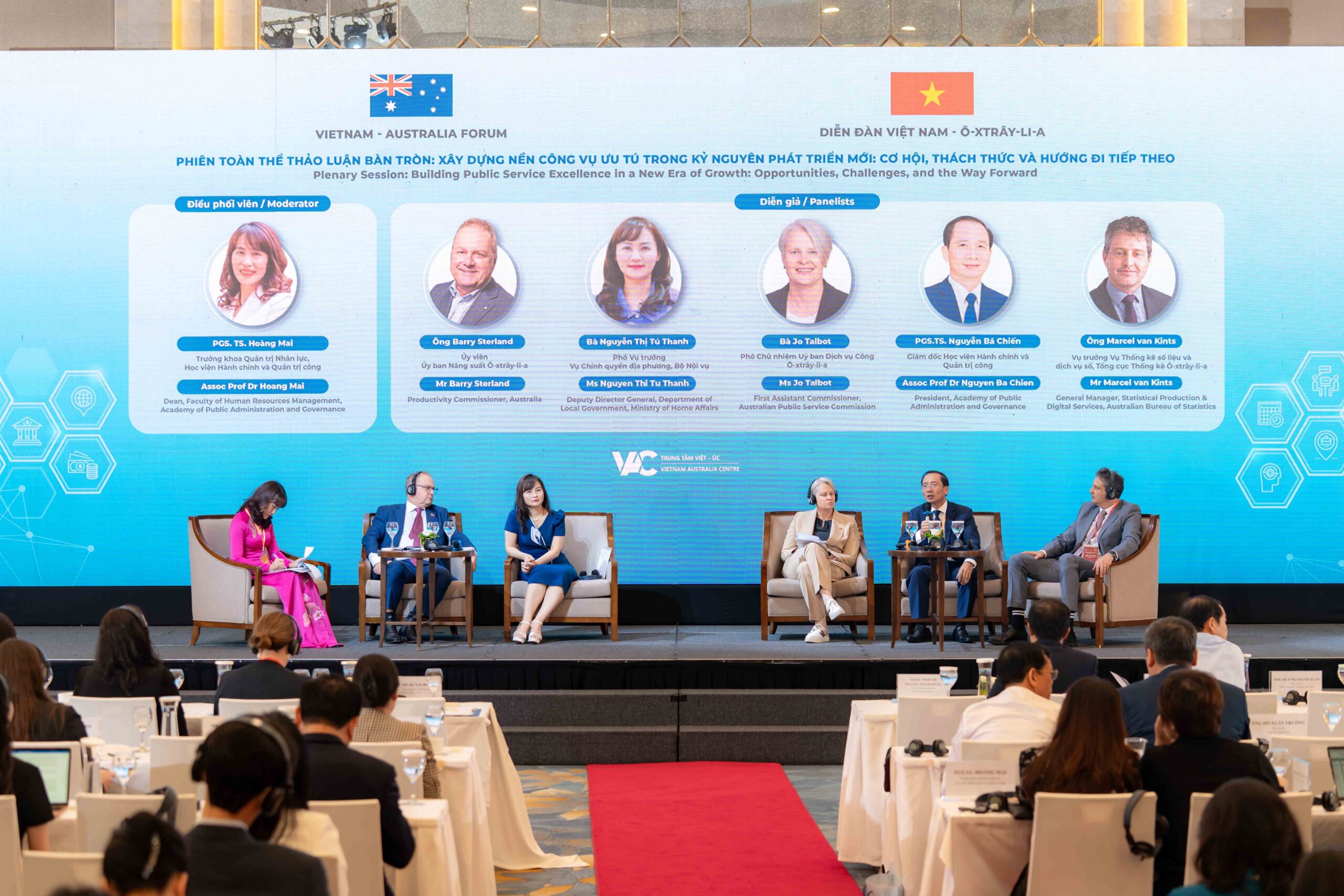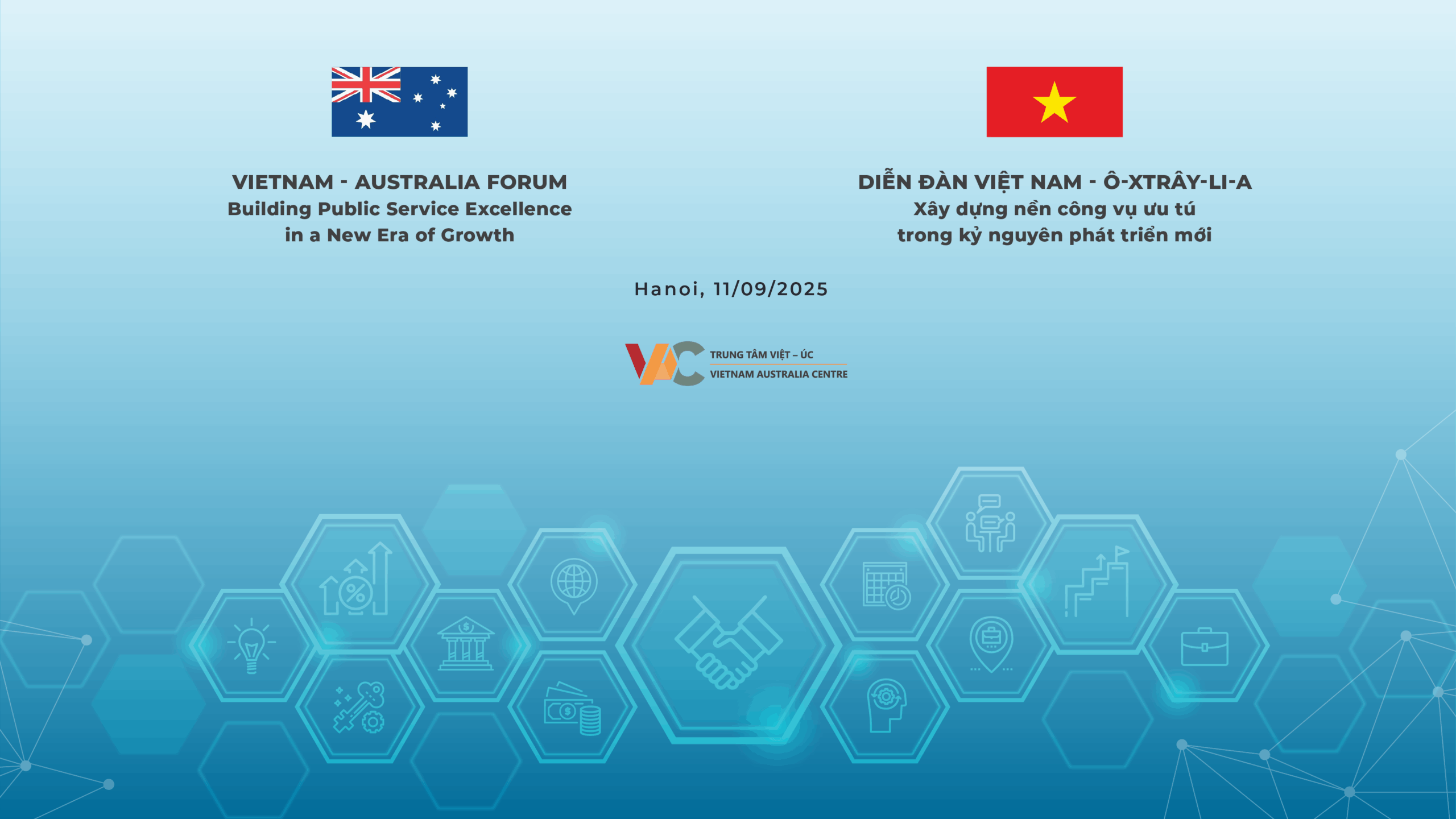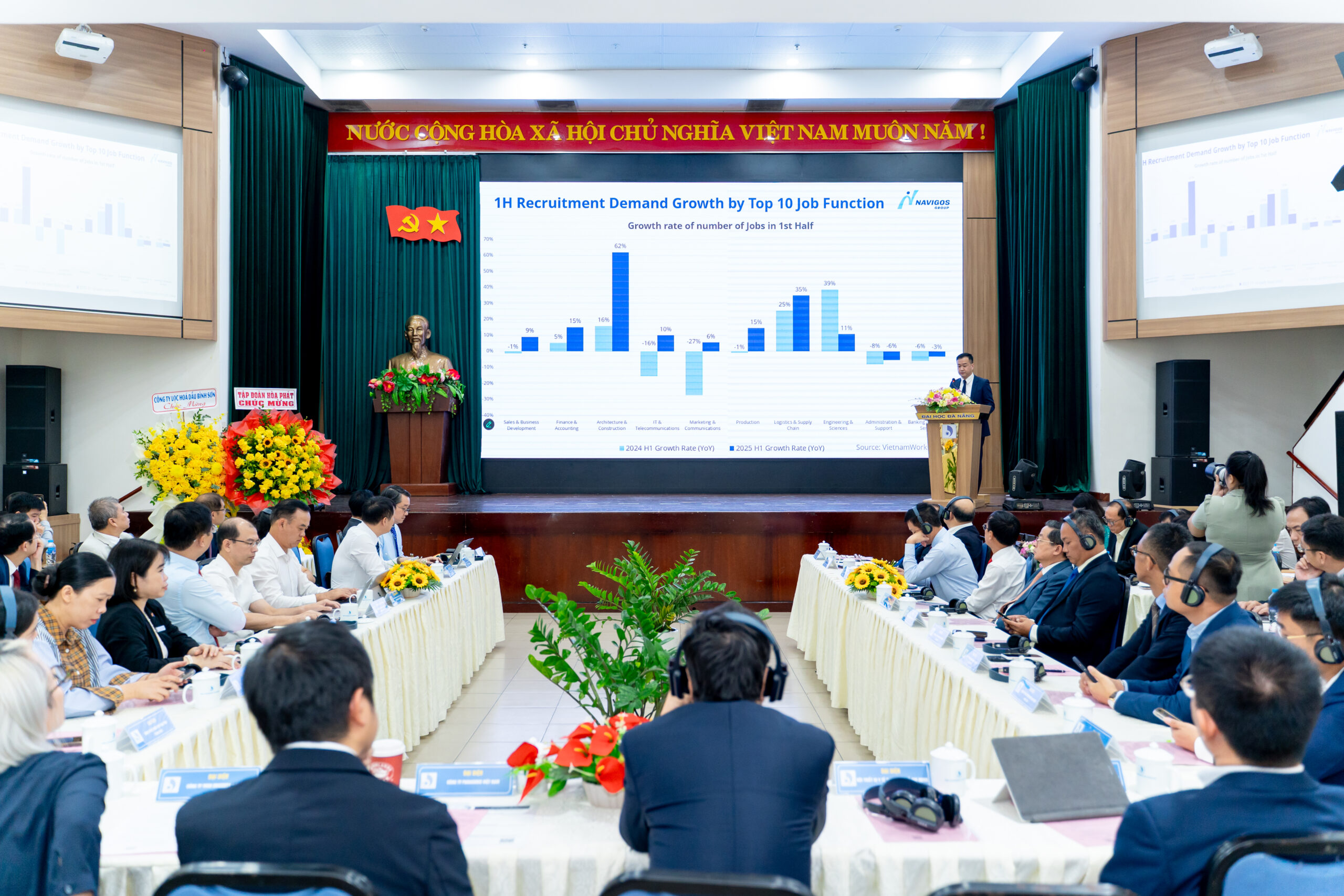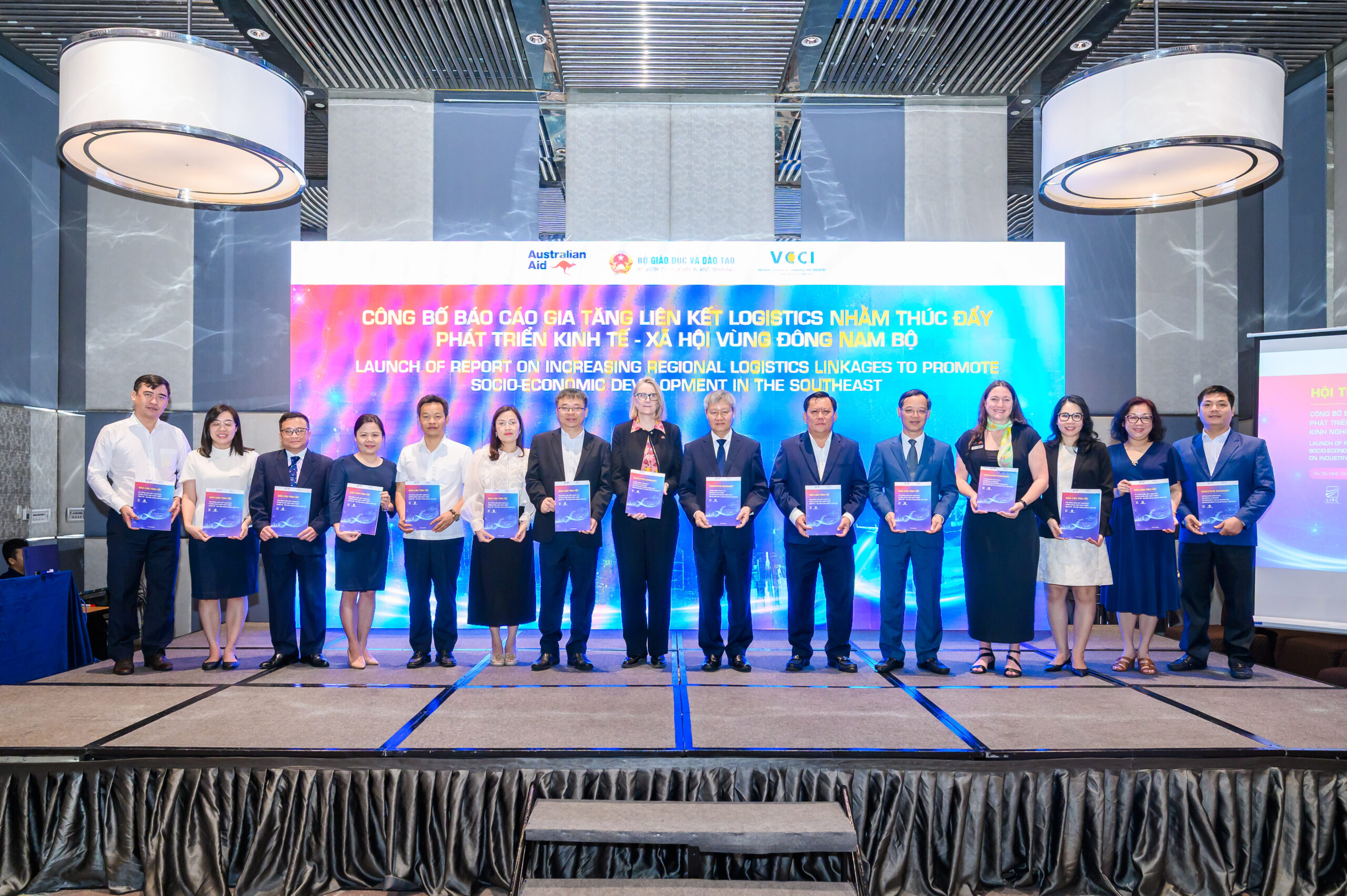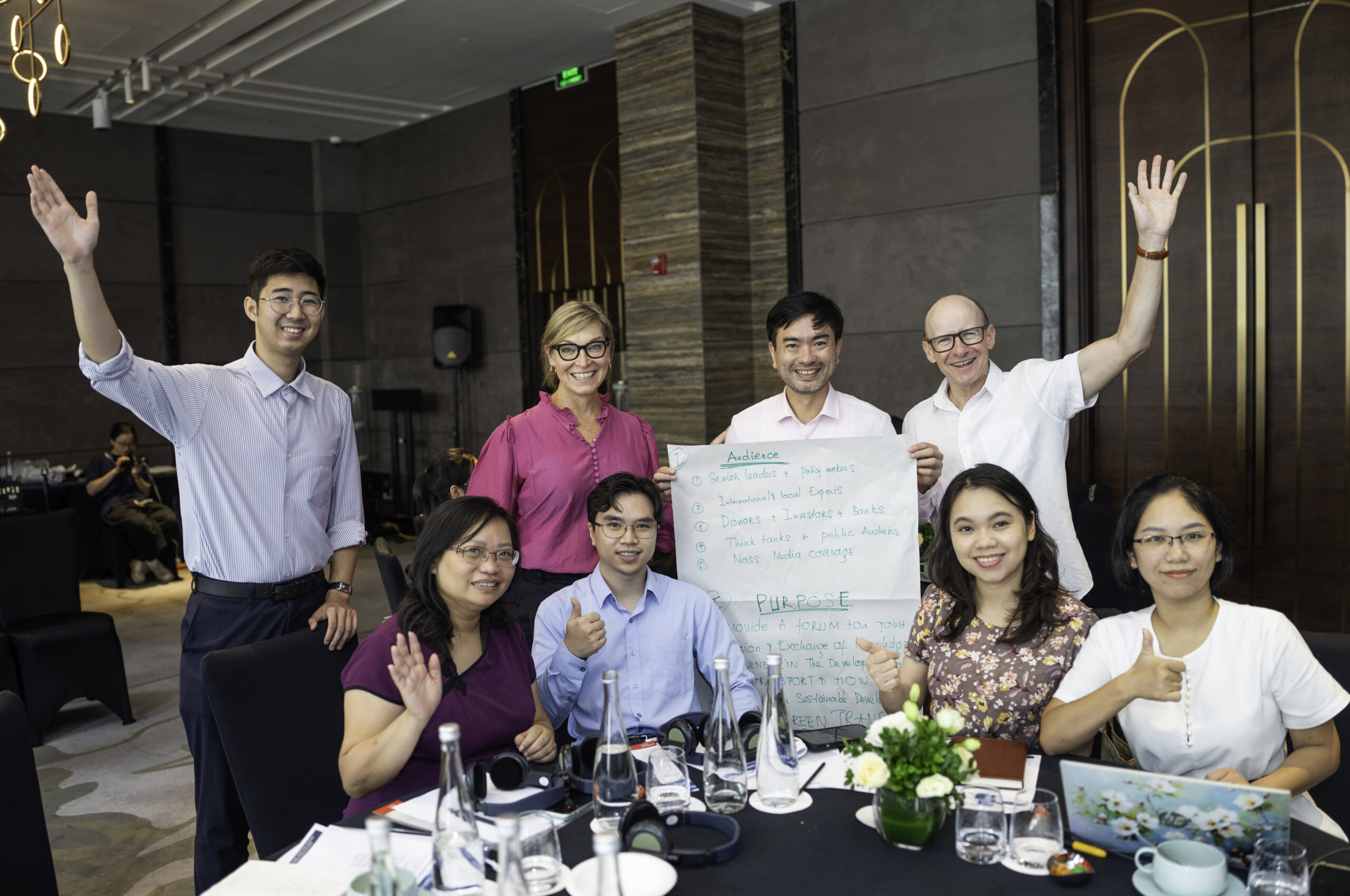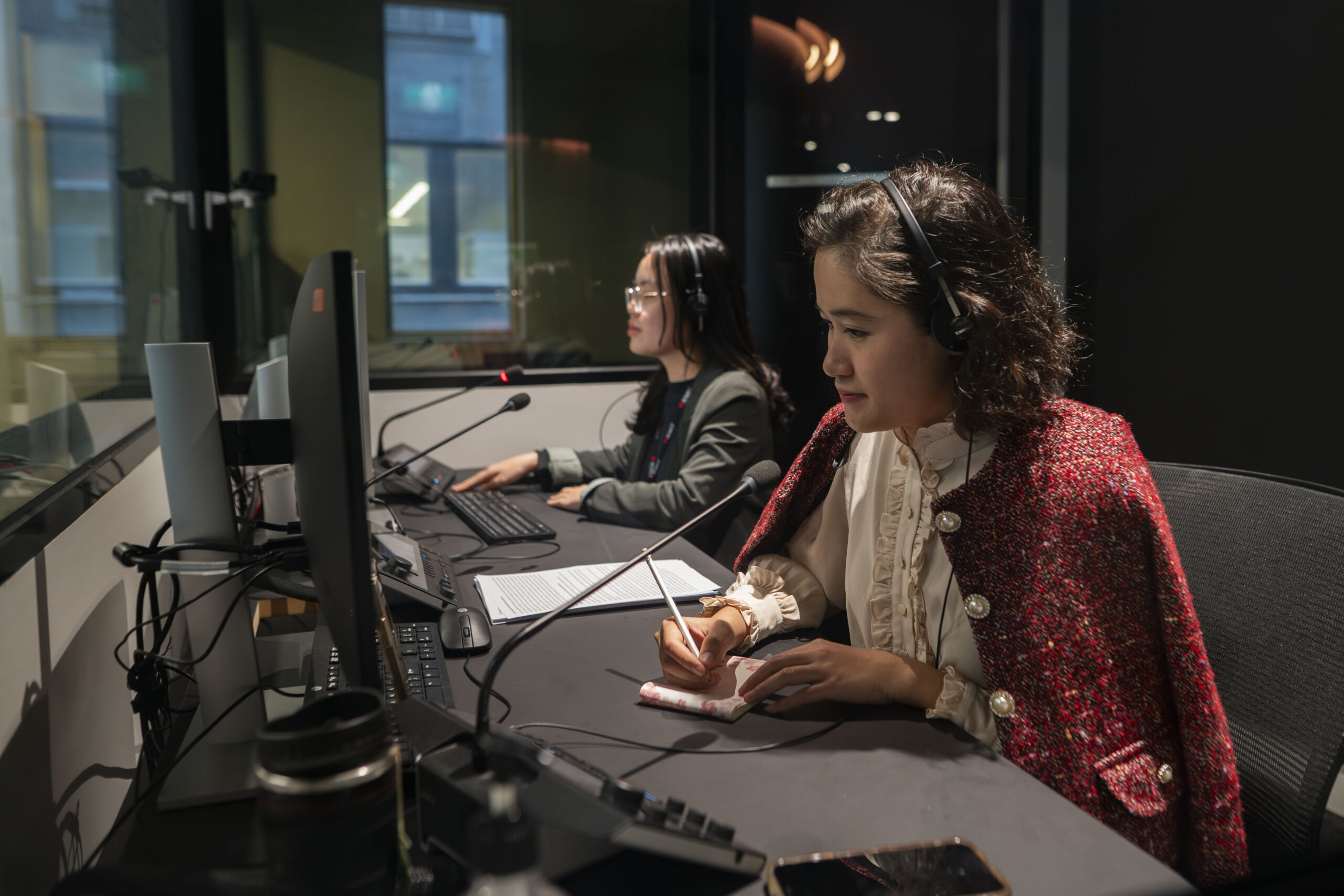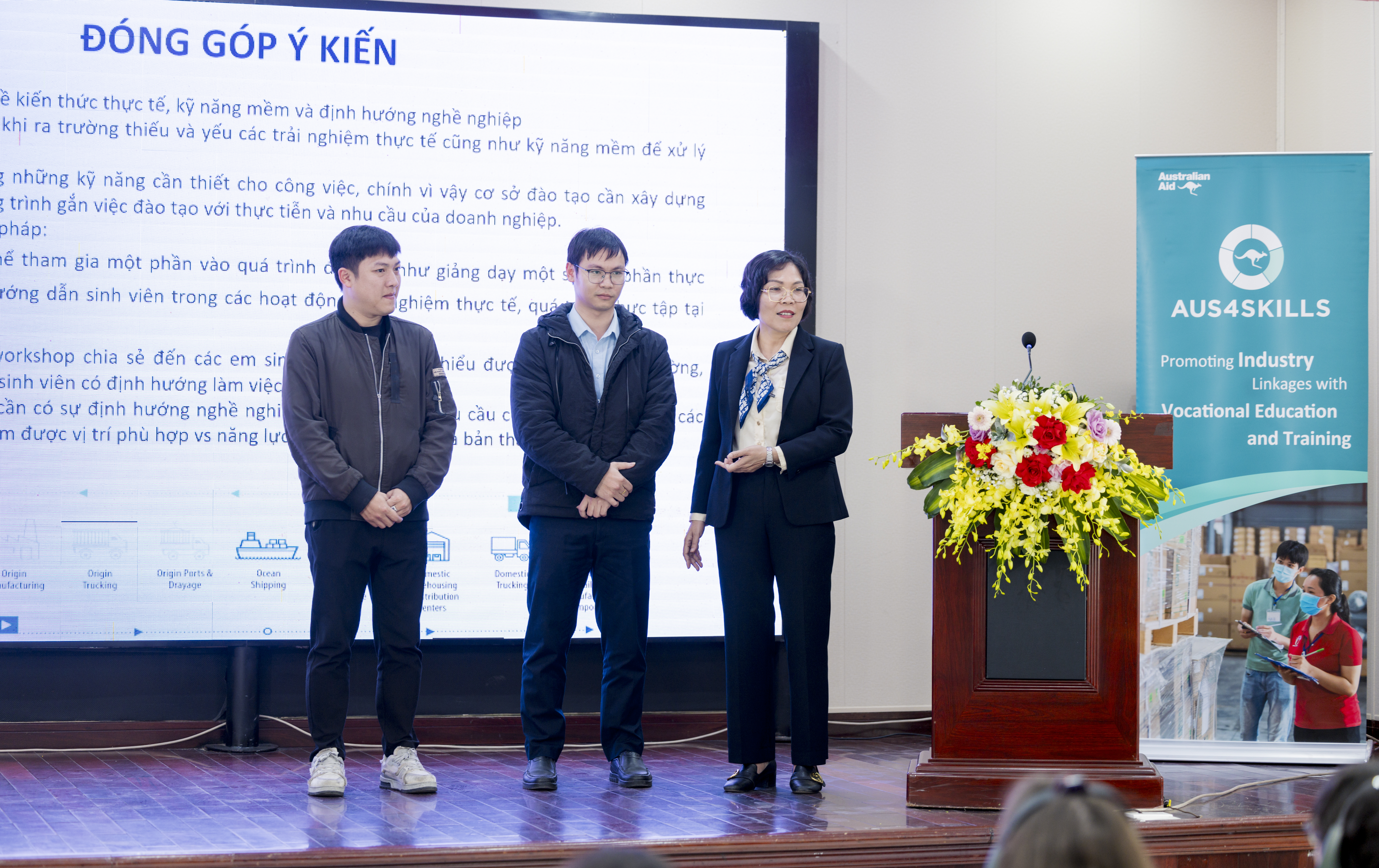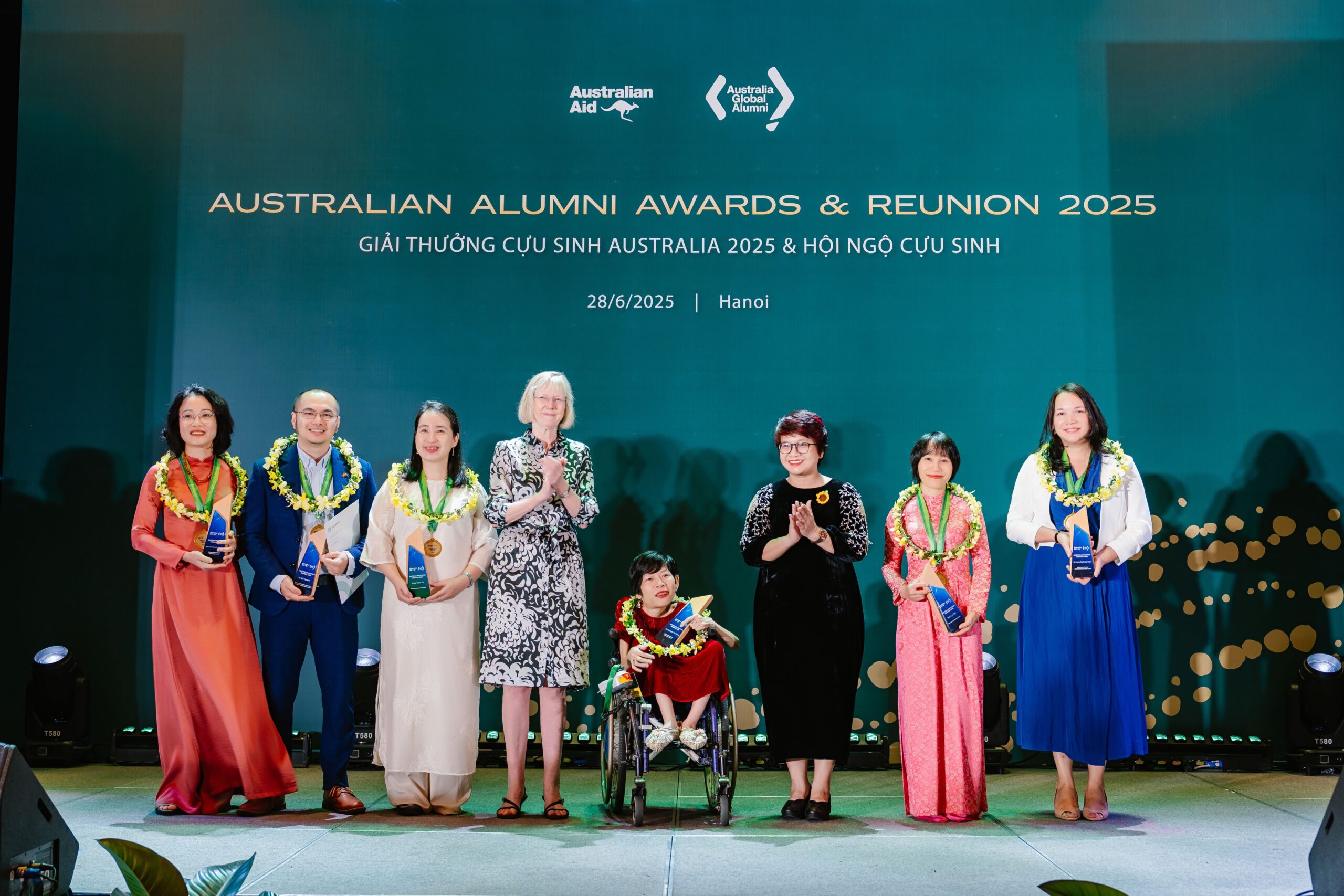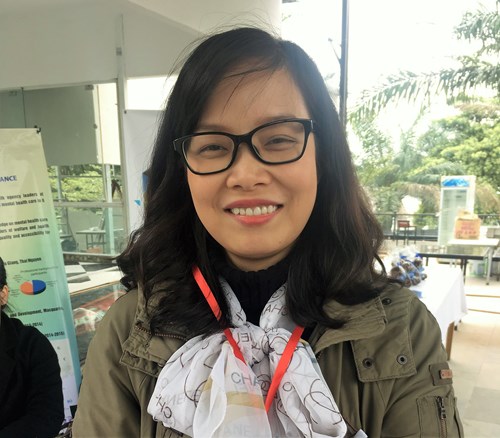
Australia Awards Alumna Ms Hoang Dieu Thuy
Education & Times Newspaper – With gentle eyes, smiles lighting up her face, and a confident attitude, only a few people know that Hoang Dieu Thuy, a Tay ethnic minority person, was so persistent and enduring through her study time in Australia under an Australia Awards Scholarship.
After studying abroad and obtaining a Master degree on Development and Culture (Applied Anthropology), Macquarie University (Australia), Dieu Thuy is currently Director of the Ha Giang Centre for Community Assistance (HCA) and Managing Director of Ha Giang Community Learning Centre (HCLC).
In an interview with Education and Times Newspaper, Dieu Thuy shared her thoughts on study abroad and the initial steps with the first community-based learning model in Vietnam.
“When receiving a Congratulation letter from the Australia Awards Scholarship Program, I squeezed my own hands dozen times”
Dieu Thuy shared: “In 2007, my close friend received a Fulbright scholarship and pursued her studies in the United States. In the Winter that year, she sent me a letter telling me about the United States. In the whole letter, there was no word about the conveniences of life in the United States. She told me about the way the American entertainment industry had developed images of a young boy with the dream of becoming a dolphin coach and how he had strived to realize his dream.
At the end, she added: “We might not be taught to dream and how to build our dream, but I believe that we can learn by ourselves. I believe that you will know what you like and what you need after reading this letter. Please start by learning English.” Then, she told me about the Australian Government Scholarship as the best opportunity to join a systematic English course.
I read this letter over and over again, then wondered: What is my dream? What do I really want? After answering these two questions, I started finding out more about the Australian Government Scholarship Awards. However, I know that in order to join an English course funded by the scholarship, I must have a score of at least 4.5 in the IELTS Test.
After that, I bought English books for self-learning. At that time in Ha Giang town (now Ha Giang City), I could not find a foreign language training centre. However, self-learning was not easy because I usually had business trips to districts and communes which could last weeks and I was pregnant and had small children. However, four years later, in 2011, I gathered enough confidence to submit an application for the Australia Awards.”

Hoang Dieu Thuy at her graduation ceremony at Macquarie University
With emotion she shared: “Upon receiving a Congratulation letter from the Australia Awards and being accepted in an English course before departure, I squeezed my own hands dozen times to confirm that my dream had come true. To an ethnic minority person who lives in a poor and remote area, like Ha Giang town, receiving a full scholarship and coming to Australia for study was not in my imagination or of other people’s in this small town. Despite my persistence and endurance during these 4 years, this was still difficult to imagine.
At the final stage, when I had overcame myself and the language barrier, I had to face another obstacle: social prejudice about women studying, especially married women with small children. I cannot remember how many times I received “advice” and restraining words from relatives, friends, colleagues, and agency leaders to give up this opportunity. However, my father helped me maintain my confidence on this journey. He said to me: “Please follow your dream. Education is the only way to a decent life.” This is how I came to Australia for study.”
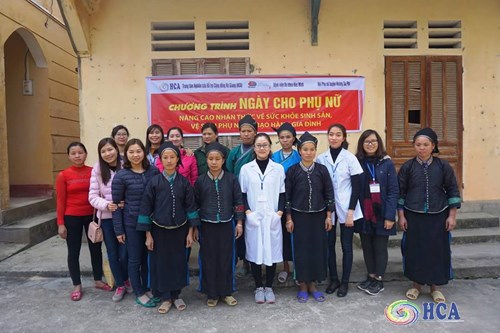
Hoang Dieu Thuy (second from right) with doctors, officers of District Women’s Union in Hoang Su Phi District (Ha Giang Province)
“Ha Giang is where I can make the most of my life”
– There is a significant number of students abroad looking for job and residence opportunities in foreign countries. What is your view?
* Like many other young people, I like the conveniences and stable life of Western societies, as well as the modern features of cities like Hanoi, Ho Chi Minh City, and so on. However, I feel happier when living in Ha Giang province. This happiness comprises meeting my parents, family, relatives every day, working with other young persons from the same background, sharing things that I did not know when I was at their age, transferring knowledge, skills which I obtained in Australia, and learning from them about things I did not experience when I was younger; joining the path with disadvantaged communities in the province, such as women, children, people with disabilities, disadvantaged persons from ethnic minority groups.
I think working for community development requires us to be immersed in the community; we must be an insider. When we stay away from reality and the community, actions and words for the community will easily become not feasible and clichéd.
Therefore, I consider that Ha Giang province is where I can make the most of my life. Until our contributions are recognized by local governments and communities, we would like to devote our lives to this.
I believe that my colleagues also have the same opinion when returning to Ha Giang province. We trust in “pay it forward” spirit of Australia Awards Program. It means when someone does a good deed for you, the best way to return this favour is continuing to do a good deed for someone else and create opportunities for others to receive it.
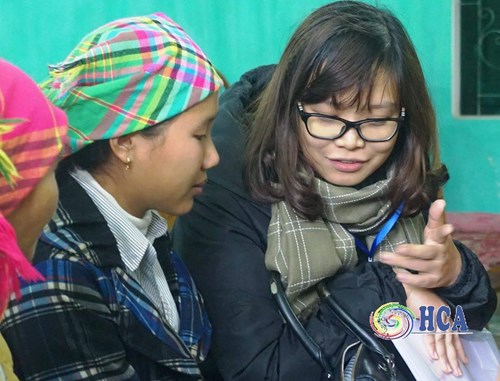
Hoang Dieu Thuy interviewed and worked with women in Vi Xuyen District about reproductive health care and domestic violence prevention. Different features in the first community-based learning model in Vietnam.
– We know that you and some Australia Award alumni established the Ha Giang Centre for Community Assistance (HCA), a private science-technology organization. Could you please explain why you chose to start up in this sector? How did you apply the knowledge you obtained in Australia in the Vietnamese situation?
* Our team comprised 3 persons with different specialized backgrounds: Applied Anthropology, Development, Social Work, Cultural Education and Management. From an overall perspective, our combined knowledge and skills enabled us to evaluate and connect existing issues in the development process of ethnic minority and mountainous communities in the context of globalization. After several discussions, we agreed to establish a private science-technology organization and selected Ha Giang as our work area.
Selecting a start-up business in the science, technology sector in a less developed and remote area, like Ha Giang is considered by many, and even to us a great challenge, especially in 3 components of social sciences and humanities: community-based education, community-based health care, and gender issues in ethnic minority communities. These activities are considered to be very difficult in the delta and city areas with relatively high public awareness and information access, not to mention in Ha Giang province.
The biggest difficulties that we had to overcome was building trust from communities, partners, and stakeholders. However, we insisted that difficulties could turn into strengths. Our strengths were that HCA members come from and understand the local community; we would like to be bridges that connect stakeholders and support communities in remote, less developed areas in the development and integration process.
Until now, after one year of establishment and development, we have built trust from local people, communities, governments, and partners which are non-government development organizations, not-for-profit organizations, and donors. Currently, we are implementing a project funded by the Australian Government on raising awareness on community-based mental health care for heads of divisions from the Department of Labour and Invalids and Social Affairs in 6 northeastern provinces; and operating the first community-based learning centre in Vietnam, which receives financial support from the state budget of Ha Giang province.
In addition, we are implementing some small-scale projects, such as: raising awareness on reproductive health, combatting domestic violence, providing free gynaecological health care for ethnic minority women in some communes and districts in Ha Giang province; organizing free classes for communities, in which teachers are foreign volunteers, etc.
– What makes you most satisfied with the Community-based Learning Centre model that you and your colleagues are operating?
Firstly, this is the first community-based learning model in Vietnam, especially being established in a multi-cultural, multi-ethnic minority community, and in a less developed, mountainous province. Therefore, the model itself is distinct.
Secondly, because this is community-based learning model, activities of our Centre are designed and conducted in consideration of community needs. The Centre’s activities in communities shall meet three criteria: traditional, indigenous culture-based approach, effective application, and compatibility with local conditions and state regulations.
This model is expected to develop and support activities of community-based learning centres at commune level in Ha Giang city and Ha Giang province in the future.
– Is there something you want to implement in the Centre but has not been realized? As knowledge is without borders, do you want to continue your study abroad to obtain more knowledge to apply in Vietnam?
* Yes, knowledge is without borders. I have just returned from a workshop held by UNESCO Asia Pacific region on sustainable development education in New Delhi, India. This was a big learning opportunity to me. I learnt about several projects which have been implemented in 16 nations in the region, about successful educational stories integrating 17 millennium development goals approved by United Nations in 2015 in New York.
What impressed the most are community-based learning projects which were implemented in almost impossible places. For example, an educational project on climate change in the Himalaya mountains, and another educational project for ending child violence at schools affected by civil war in Sri Lanka, etc.
Our biggest desire at this moment is to quickly develop a program on Science, Technology, Engineering, and Mathematics (STEM), for mountainous regions and ethnic minority communities. This is our team’s dream.
– Thank you for your sharing!
Source: http://giaoducthoidai.vn






